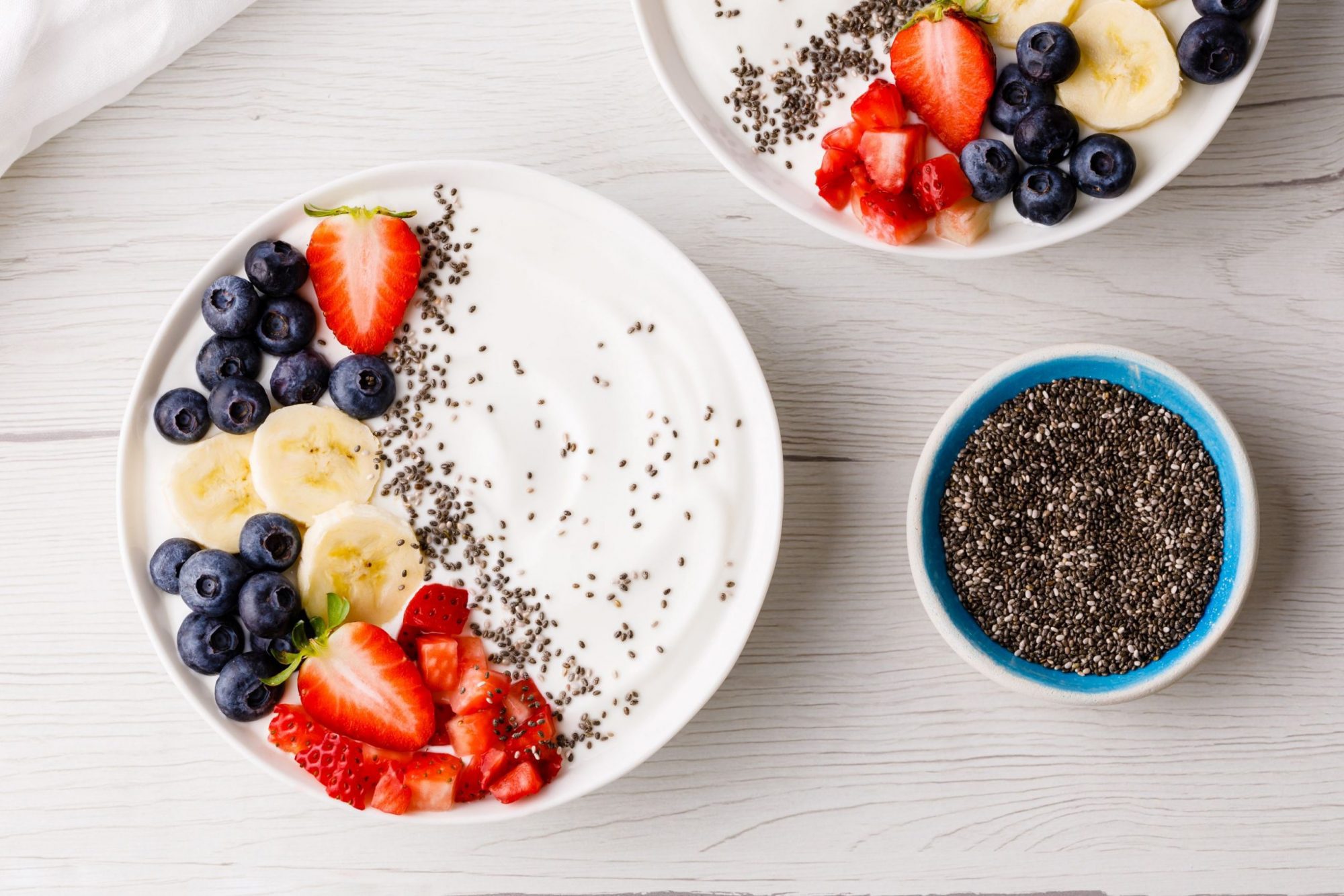Chia seeds (Salvia hispanica), often known as Salba chia or Mexican chia, are the edible seeds of a mint-family flowering plant. The seeds have a lengthy history and are native to Mexico and Guatemala. They were an important crop in the Aztec and Mesoamerican civilizations. The seeds had medical properties and were an essential element of the people’s diets.
Chia seeds are produced by the desert plant Salvia Hispanic, a member of the mint family. Salvia Hispanica Seed is known by many other names, including “chia” and other trademarked trademarks. It is said to have developed in Central America, where it was a key element of the Aztec diet.

Chia is already commercially grown in a variety of nations, including Mexico, Guatemala, Peru, Argentina, Australia, and the United States. The seeds are well-known for being a nutrient-dense complement to healthy diets.
According to a recent study, adding chia seeds to your diet can help you lose weight and improve cardiovascular risk factors including cholesterol, triglycerides, and blood pressure. However, there has been limited published research on the effects of chia seeds on hair and skin.
Chia seeds are becoming increasingly popular as a high-quality source of omega-3 fatty acids. They also include protein and minerals including iron, calcium, magnesium, and zinc, as well as 10 grammes of fiber per ounce which around 2 tablespoons.
Chia Seeds Nutritional Value
As per the United States Department of Agriculture (USDA)Trusted Source National Nutrient Database, Chia Seeds contain following nutritional components in a 28 g (1 ounce) or 2 1/2 tbsp serving of chia seeds contains:
- 13.07 g of carbohydrate
- 11.2 g of fiber
- 5.6 g of protein
- 0 g sugar
- 131 calories (kcal)
- 8.4 g of fat
Chia seeds also contain:
- Magnesium
- Calcium
- Phosphorous
- zinc
- iron
Apart from these properties Chia Seeds some amount of other nutrients such as folate, vitamin A, and copper.
10 Health Benefits of Chia Seeds
They are Rich in Omega-3
Chia is considerably higher in omega-3 fatty acids than flax seeds. Furthermore, unlike flax, chia contains so many antioxidants that the seeds do not decompose and can be stored for extended periods of time without turning rancid. And they do not need to be crushed in order for their nutrients to be absorbed by the body. According to the US National Library of Medicine, chia seeds are a high source of omega-3 and omega-6 fatty acids, which are necessary fatty substances that your body need from diet to maintain a number of tasks.
Contain good amount of Phosphorus
Phosphorus is a mineral that accounts for 1% of an individual’s total body weight. It may be found in each and every cell of the human body. The bones and teeth contain the majority of the phosphorus in the body.
Phosphorus interacts with B vitamins. It also aids in the following areas:
- Heartbeat is normal.
- Phosphorus in abundance
- Kidney performance
- Contractions of the muscles
Chia seeds include 27 percent of your daily phosphorus requirement, which aids in the maintenance of strong bones and teeth. The body also uses phosphorus to make protein for cell and tissue development and repair.
Bones and teeth
A serving of chia seeds provides around 18% of the RDA for calcium, as per the Harvard T.H. Chan School of Public Health. They are abundant in minerals including phosphorus, potassium, magnesium, and calcium, especially calcium, which is important for bone health. One serving of chia seeds, or 28 gramme, contains 30% of your daily manganese requirement. Manganese which is good for your bones and helps your body use other important minerals such as biotin and thiamin.
The help in Post-workout recovery.
According to studies published in the Journal of the International Society of Sports Nutrition, chia seeds are a good source of branched-chain amino acids (BCAAs), which have been linked to improved protein synthesis (i.e. muscle development) and decreased muscle breakdown during exercise. Chia seeds, one of the very few complete plant proteins, deliver a dose that can help your body recover faster after exercise. As a complete protein, they include all nine necessary amino acids that your body cannot produce on its own, according to the Harvard T.H. Chan School of Public Health.
They can help with intestinal health.
A 28-gram portion of chia contains 11 grammes of dietary fiber, which is almost one-third of the adult RDA.
According to the Centers for Disease Control and Prevention, that’s between 29 and 45 percent of the fiber you need in a single day, depending on your demands (CDC). And this fiber has all sorts of feel-good properties in your digestive tract. Including chia in your diet is a simple way to ensure you’re receiving enough fiber, which is vital for digestive health. According to the US National Library of Medicine, the majority of chia’s fiber is insoluble, which adds volume to your stool and hurries things along, thereby reducing constipation and making it simpler to poop.
Controlling Your Appetite
Satiety refers to the feeling of being filled and satisfied. Chia seeds contain tryptophan, an amino acid present in turkey. While tryptophan is essential for the intense desire to nap after a large Thanksgiving meal, it also helps control appetite, sleep, and mood.
Chia Seeds enhance blood sugar regulation by providing fiber and protein, which keeps your appetite and energy levels more consistent between meals. They also absorb liquids when added to drinks, making them even more pleasant.
Improve Your Heart’s Health
As per the Cleveland Clinic, chia seeds can reduce blood pressure in diabetics and may raise good cholesterol while decreasing total, LDL, and triglyceride cholesterol. In addition to the advantages listed above, chia seeds include calcium, phosphorus, magnesium, copper, iron, molybdenum, niacin, and zinc. Almost majority of the fat in chia seeds is healthful, unsaturated fat. Omega-3 fats account for five of the approximately 9 grammes per serving.
They are full of Protein
Chia seeds are also a great source of protein for vegans and contain no cholesterol. One 28-gram serving of these super seeds contains 4.4 grammes of protein, which accounts for over 10% of the recommended value. This is a larger proportion than in many other cereals, including wheat and rice. Chia seeds contain strontium, which aids in protein digestion and energy production.
A Good B-Vitamin Source
B-vitamins are essential for metabolism and cardiovascular health. Chia seeds include a variety of B vitamins, including thiamin, riboflavin, and niacin. Chia seeds, with 2.5 milligrams of niacin per ounce, can help you reach the daily required 14 to 16 milligrams.
Maintaining Blood Sugar Levels
Chia seeds provide a lot of fiber. Fiber may significantly minimize insulin resistance and improve blood sugar levels, decreasing your risk of metabolic syndrome and type 2 diabetes, according to study. Chia seed bread has a lower blood sugar reaction than ordinary bread, which helps to avoid high blood sugar levels, according to research.

Words From Us: – How to take Chia Seeds
Chia seeds have a very mild flavor and are consequently preferred for texture over flavor. Their most notable aspect is that they absorb an incredible quantity of liquid—up to ten times their dry weight—swelling into small tapioca-like balls.
Chia seeds can be added directly to liquid-containing items such as juice or yoghurt. Making chia gel is suggested by Eating with Purpose. Chia gel may be made by combining 1/3 cup chia seeds with 2 cups warm water and allowing the mixture to thicken. The longer the gel is left to sit, the thicker it becomes. Chia seeds can be ground as well.



